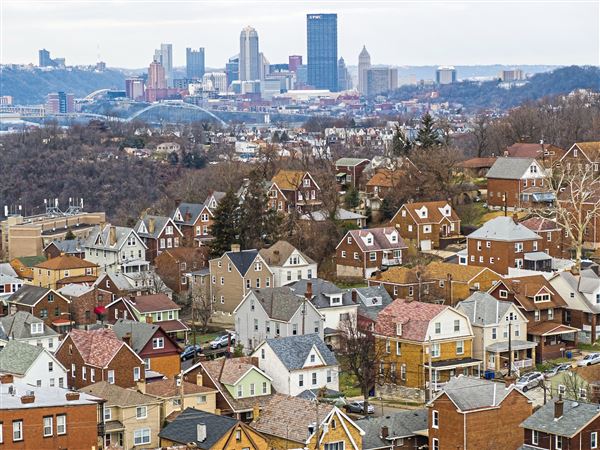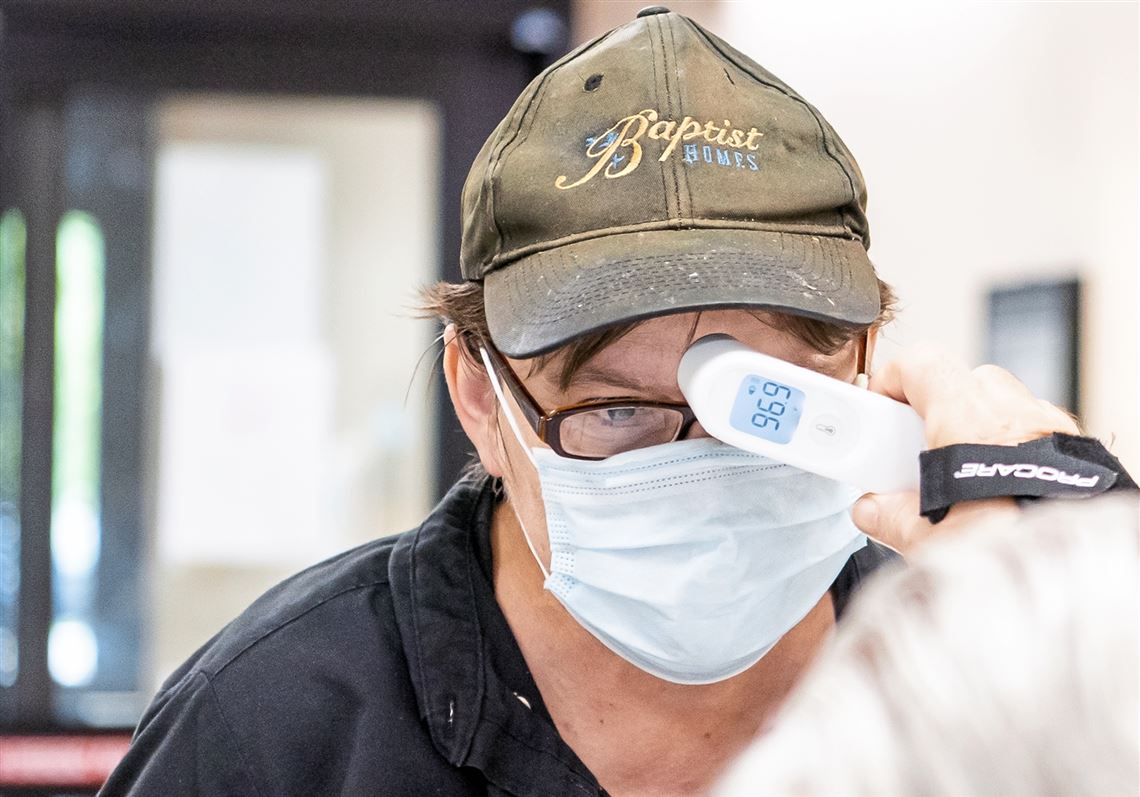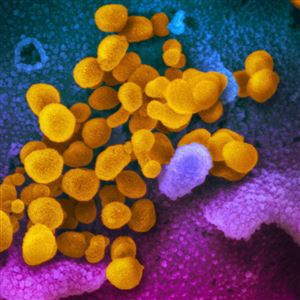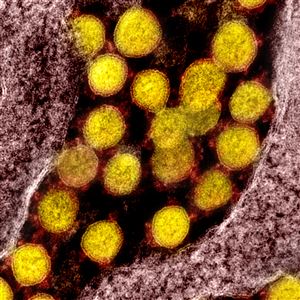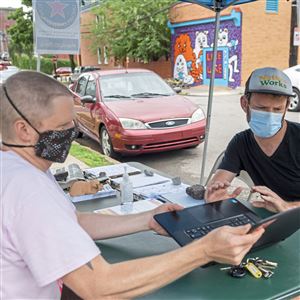At first, when Baptist Homes in Mt. Lebanon started taking temperatures and asking health screening questions of everyone who entered to help reduce the spread of COVID-19, the organization used existing employees to do the job.
“We were using administrators, social workers, using our chaplain — we were probably using our chaplain too much — administrators, admissions,” said Eric Conti, director of human resources.
Several months ago, the senior living community decided it was time to hire a full-time employee to handle front desk health screening. The position has been so valuable since then that they currently are interviewing for another desk screener to cover the night shift. “Initially our current staff were like, ‘We’ll help out,’ said Mr. Conti. “Now that we’re in month five, month six, they still have their jobs to do.”
Among the byproducts of the COVID-19 economy is a brand new job: temperature taker. While some organizations are able to use security guards or receptionists to take care of the task, others are hiring specifically for dedicated temperature takers or health screeners.
By mid-May, the employment website Glassdoor reported 600 listings nationwide for temperature checkers.
“It’s an interesting job because it’s in such high demand yet it feels so fleeting in some ways,” said Andy Challenger, vice president at Challenger, Gray and Christmas, a global outplacement and business coaching firm headquartered in Chicago. “At every event, every company that has people coming in in person, temperature screening seems to be the most basic measure that people are adopting.”
At Pittsburgh health giant UPMC, everyone who arrives at every hospital or senior community — including employees, patients, essential providers, vendors and visitors — is screened for COVID-19 symptoms and exposures, said spokeswoman Gloria Kreps.
While UPMC mainly has been able to cover the work of screening with existing staff members, the health system also is seeking full-time, temporary employees to cover shifts at some locations. Currently, the job website Indeed.com has listings for UPMC positions at the Mercy, McKeesport, Presbyterian and Shadyside hospitals.
At Baptist Homes, the temperature-taking part isn’t technically difficult, said Mr. Conti.
But the job does require good people skills and meticulous record keeping. “There are a number of questions to be asked and they have to document everything,” he said. “They also need the ability to be alert, with some tact and a certain personality.”
The person may have to handle difficult situations, for example if a family member permitted to visit a resident in an end-of-life condition doesn’t pass the health screening.
Baptist Homes is trying not to load up the health screener with other administrative duties, said Mr. Conti. “For the most part, the sole responsibility of that person is to handle that volume.” Salary for the position is in the “mid-teens” he said, with health and other benefits.
While at first some companies considered hiring nurses or those with medical backgrounds for the positions, the slots now are seen as more administrative, said Mr. Challenger. In terms of qualifications, UPMC lists a strong preference for prior experience in retail, hospitality, or customer service industries, as well as a high school diploma, if not post-secondary education.
UPMC has classified its positions as temporary jobs, listing the “screener/admin support” job at UPMC Presbyterian and UPMC Shadyside as a three-month position.
At Baptist Homes, administrators considered listing the positions as temporary but decided instead to classify them as permanent jobs.
“I don’t know if it’s forever,” said Mr. Conti, “but it’s for a long period of time.”
Anya Sostek: asostek@post-gazette.com.
First Published: September 6, 2020, 10:45 a.m.
